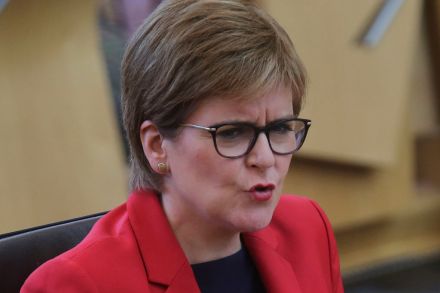Scotland’s next constitutional fight won’t be over a referendum
Get ready for a constitutional rammy during the first half of this, the sixth session of the Scottish parliament. Just don’t expect it to be over a second independence referendum. Recent polling shows momentum has moved back in favour of those wishing to remain in the UK, while signals from the public also consistently suggest a lack of appetite for another referendum anytime soon. Nicola Sturgeon knows this, which means the phoney war over a repeat plebiscite will likely trundle on without bringing any great change to the country. The real action is elsewhere. Specifically, the upcoming review of the Fiscal Framework Agreement, which is set to be fraught and,




















